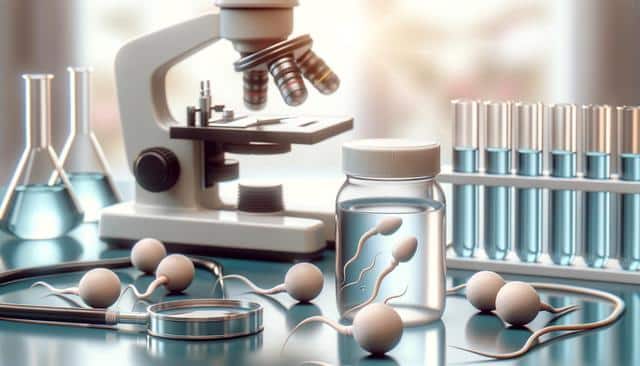
Understanding the Sperm Donation Process: A Step-by-Step Guide
What Is Sperm Donation and Why Is It Needed?
Sperm donation is a voluntary act in which a male donates his semen — the fluid containing sperm — to help individuals or couples conceive a child. It plays an important role in reproductive medicine, especially for single women, same-sex couples, and heterosexual couples facing male infertility. Sperm donation typically takes place at a licensed fertility clinic or sperm bank, where the donated sperm is frozen and stored for future use in assisted reproductive techniques such as intrauterine insemination (IUI) or in vitro fertilization (IVF).
There are several reasons people turn to sperm donation, including:
- Male infertility, such as low sperm count or poor sperm motility
- Genetic disorders that a biological father may pass to offspring
- Single women who wish to have a child independently
- Same-sex female couples looking to expand their family
Understanding the motivations behind sperm donation is essential for both donors and recipients. It not only allows for family building but also offers donors a chance to contribute meaningfully to others’ lives.
Eligibility Requirements for Donors
Before becoming a sperm donor, individuals must meet specific eligibility criteria designed to ensure the safety and health of recipients and potential offspring. These requirements are set by national health authorities and fertility clinics, and they may vary slightly by region or institution.
Common eligibility factors include:
- Age range, typically between 18 and 39 years old
- Good overall physical and mental health
- Non-smoker and no history of drug abuse
- Free from sexually transmitted infections (STIs)
- No family history of serious genetic disorders
In addition to meeting these criteria, donors usually undergo a thorough screening process. This includes a medical examination, semen analysis, and a review of medical and family history. Psychological assessments are sometimes included to ensure donors understand the emotional and ethical aspects of their decision.
The Donation Process Explained
Once a candidate is approved, the actual sperm donation process begins. It is structured, confidential, and medically supervised to maintain the quality and safety of the donated material. Typically, the donation takes place in a private room at a clinic or sperm bank, where the donor provides a semen sample through masturbation. The sample is then labeled, processed, and frozen using a method called cryopreservation.
Here’s a general overview of the donation steps:
- Initial consultation and screening
- Approval based on medical and genetic testing
- Multiple donations over a set period (usually several weeks)
- Quarantine of samples for 6 months to allow re-testing for infectious diseases
- Final release of samples if all tests remain clear
Donors may be asked to abstain from ejaculation for 2–3 days before each donation to ensure optimal sperm quality. The entire process is designed to be safe for the donor and beneficial for future recipients.
Legal and Ethical Considerations
Sperm donation involves important legal and ethical responsibilities for both donors and recipients. In many countries, anonymous donation is common, although some regions now allow or require donor-conceived children to access identifying information once they reach a certain age. Donors usually sign a legal agreement that outlines their rights and responsibilities, often clarifying that they will not have legal or financial obligations toward any resulting children.
Key legal aspects to consider include:
- Consent forms that waive parental rights
- Confidentiality agreements to protect donor and recipient identities
- Regulations around donor compensation, which varies by country
- Limits on the number of families a donor’s sperm can be used for, to reduce the risk of consanguinity
Ethically, donors are encouraged to consider the long-term impact of their donation, including the possibility that offspring may seek contact in the future. Clinics often provide counseling to help donors make informed decisions.
Impact on Donors and Recipients
The decision to donate or use donated sperm can have a profound emotional and psychological impact. For donors, the process can bring a sense of pride and contribution, but also requires thoughtfulness about future implications. For recipients, sperm donation offers a path to parenthood that would otherwise be unavailable, yet it may also raise questions about identity, disclosure, and family dynamics.
Psychological support is often available to all parties involved. Some clinics and organizations offer counseling services to:
- Help donors understand their motivations and potential future contact with offspring
- Support recipients in navigating the emotional aspects of using donor sperm
- Assist donor-conceived children in understanding their origins
Ultimately, sperm donation is not just a medical procedure—it is a decision that touches many lives. Open communication, proper legal guidance, and emotional readiness are key to a positive experience for everyone involved.
Conclusion: A Responsible and Meaningful Decision
Sperm donation is a carefully regulated and impactful process that enables individuals and couples to realize their dreams of parenthood. Whether you are considering becoming a donor or exploring this option as a recipient, understanding each step of the process—from eligibility and medical screening to legal agreements and emotional considerations—can help you make informed and responsible choices. By approaching sperm donation with awareness and respect, all parties involved can experience the benefits of this important reproductive option.


